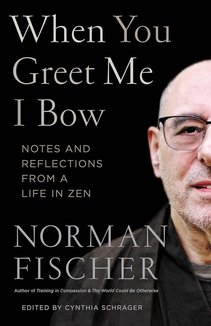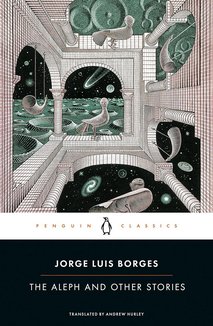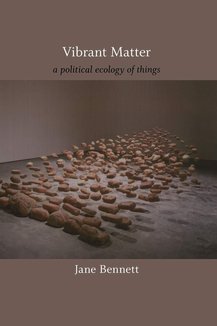Recommended Books

When You Greet Me I Bow: Notes and Reflections from a Life in Zen
Authors:
Norman Fischer
,
Cynthia Schrager
ISBN 13:
978-1611808216
From beloved Zen teacher Norman Fischer, a collection of essays spanning a life of inquiry into Zen practice, relationship, social engagement, and spiritual creativity. "Looking backwards at a life lived, walking forward into more life to live built on all that, trying not to be too much influenced by what's already been said and done, not to be held to a point of view or an identity previously expressed, trying to be surprised and undone and maybe even dismayed by what lies ahead."--Norman Fischer Norman Fischer is a Zen priest, poet, and translator whose writings, teachings, and commitment to interfaith dialogue have supported and inspired Buddhist, Jewish, and other spiritual practitioners for decades. When You Greet Me I Bow spans the entirety of Norman Fischer's career and is the first collection of his writings on Buddhist philosophy and practice. Broken into four sections--the joy and catastrophe of relationship; thinking, writing, and emptiness; cultural encounters; and social engagement--this book allows us to see the fascinating development of the mind and interests of a gifted writer and profoundly committed practitioner.

The Aleph and Other Stories (Penguin Classics)
Authors:
Jorge Luis Borges
,
Andrew Hurley
ISBN 13:
978-0142437889
Full of philosophical puzzles and supernatural surprises, these stories contain some of Borges’s most fully realized human characters. With uncanny insight he takes us inside the minds of an unrepentant Nazi, an imprisoned Mayan priest, fanatical Christian theologians, a woman plotting vengeance on her father’s “killer,” and a man awaiting his assassin in a Buenos Aires guest house. This volume also contains the hauntingly brief vignettes about literary imagination and personal identity collected in The Maker , which Borges wrote as failing eyesight and public fame began to undermine his sense of self. For more than seventy years, Penguin has been the leading publisher of classic literature in the English-speaking world. With more than 1,700 titles, Penguin Classics represents a global bookshelf of the best works throughout history and across genres and disciplines. Readers trust the series to provide authoritative texts enhanced by introductions and notes by distinguished scholars and contemporary authors, as well as up-to-date translations by award-winning translators.

Vibrant Matter: A Political Ecology of Things (a John Hope Franklin Center Book)
Author:
Jane Bennett
ISBN 13:
978-0822346333
In Vibrant Matter the political theorist Jane Bennett, renowned for her work on nature, ethics, and affect, shifts her focus from the human experience of things to things themselves. Bennett argues that political theory needs to do a better job of recognizing the active participation of nonhuman forces in events. Toward that end, she theorizes a “vital materiality” that runs through and across bodies, both human and nonhuman. Bennett explores how political analyses of public events might change were we to acknowledge that agency always emerges as the effect of ad hoc configurations of human and nonhuman forces. She suggests that recognizing that agency is distributed this way, and is not solely the province of humans, might spur the cultivation of a more responsible, ecologically sound politics: a politics less devoted to blaming and condemning individuals than to discerning the web of forces affecting situations and events. Bennett examines the political and theoretical implications of vital materialism through extended discussions of commonplace things and physical phenomena including stem cells, fish oils, electricity, metal, and trash. She reflects on the vital power of material formations such as landfills, which generate lively streams of chemicals, and omega-3 fatty acids, which can transform brain chemistry and mood. Along the way, she engages with the concepts and claims of Spinoza, Nietzsche, Thoreau, Darwin, Adorno, and Deleuze, disclosing a long history of thinking about vibrant matter in Western philosophy, including attempts by Kant, Bergson, and the embryologist Hans Driesch to name the “vital force” inherent in material forms. Bennett concludes by sketching the contours of a “green materialist” ecophilosophy.